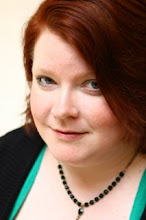I tend to doubt myself a lot, especially when it comes to my writing, it seems. I can be the biggest cheerleader for someone else, but when it comes to my own work, my own talents? Not so much. I'm noticing it more than ever now that I'm ensconced in revisions on my most recent WIP.
Because of that, I think I have a tendency to completely confuse my strengths and weaknesses as a writer. You know, they say (whoever that elusive they are) that it is important to know those strengths and weaknesses, so that you can learn to make the most out of your strengths and minimize your weaknesses.
I don't try to minimize my weaknesses, though. Instead, I try to turn them into strengths. I work at them and work at them, trying all the time to get better at whatever the perceived weakness is. I buy books on the craft of that particular skill, and I work through them from front to back. I take what I learned, and try to implement it into my writing.
Take, for example, the art of writing dialogue. I believe that dialogue is one of the trickiest parts of writing any fiction, in general. And if you're writing historical fiction? The difficulty increases ten-fold.
Not only does the dialogue have to flow and sound believable to a modern ear for the modern reader, but it has to make sense and be believable for the historical context. After all, people didn't say things like: "Yo, dude, what's hangin'?" in the Regency Era. At least, I'm fairly certain they didn't.
Ever since I first started writing, I've believed that dialogue is one of my biggest weaknesses. Now, don't misunderstand me. I've never had a critique partner tell me anything of the sort. I've never had an agent that I had queried tell me that. No one planted this idea in my head but me.
But I believed it with an intensity that could melt steel. So what did I do? I bought books on creating realistic dialogue. I practiced with writing pieces of dialogue that had nothing to do with my current WIP, in order to get practice. I crafted and re-crafted the dialogue in my scenes, stressing endlessly over how bad it was, and how I couldn't get it quite the way I wanted it.
No matter what I did with my dialogue, though, I wasn't satisfied. It was garbage in my eyes. It was the reason that I'd never get published, that no editor would ever offer me a contract.
So imagine my surprise when one of our lovely critique partners recently critiqued a chapter and told me how delightful and snappy my dialogue was.
What?
I even sent her an email follow-up, wondering to myself if perhaps she had mistakenly put that comment in my critique when it really belonged in someone else's critique. We have some great dialogue writers in our group, after all. Writers who are far better at that aspect of the craft than me--at least in my eyes.
She confirmed that my dialogue was great. Huh. Whoda thunk it? Certainly not me.
That was actually the first comment on the dialogue I've written that I think I've ever received, and it was followed soon after by a similar comment from another of our critique partners.
All of my perceptions about my abilities have actually been my own. No outside influences. No one else has shaped my opinion of my ability in that way. I just automatically doubted myself.
I do that all the time, and not just with my dialogue. I'll struggle with a chapter, and by the time I'm done with it I can't stand to look at it for another minute, thinking that it is the biggest piece of trash I've ever written. Somehow I'll convince myself to actually let someone else see it before I toss it in the can, just to confirm to myself how horrific it is. I'll put it up for critiques, certain that my critique partners will agree with me, tell me I've lost all my marbles, say I should toss it and start from scratch, or maybe I should just give up on the whole writing thing entirely because I am clearly not capable of writing anything anyone else will want to read.
Instead, they come back and tell me how delightful it is, and that they couldn't find anything to critique other than correcting a couple of typos. Maybe they'll suggest an area that needs more emotion, or point out how I've slipped into telling mode when I ought to be showing. And after I've allowed it to sit for a while, allowed myself time and distance from it, and then come back to it--a lot of times, I agree with them.
I'm sure I'm not the only one out there who does this. Most of us are our own worst critics. I only wonder how many of us give in to the voices in our heads before we persist long enough to succeed.
Do you suffer from this affliction in any area of your life? How do you convince yourself to keep going when your internal editor keeps telling you that you'll never make it? And have you ever discovered that one of your supposed weaknesses might actually be a strength?
**Originally published at Lady Scribes**
Subscribe to:
Post Comments (Atom)


No comments:
Post a Comment